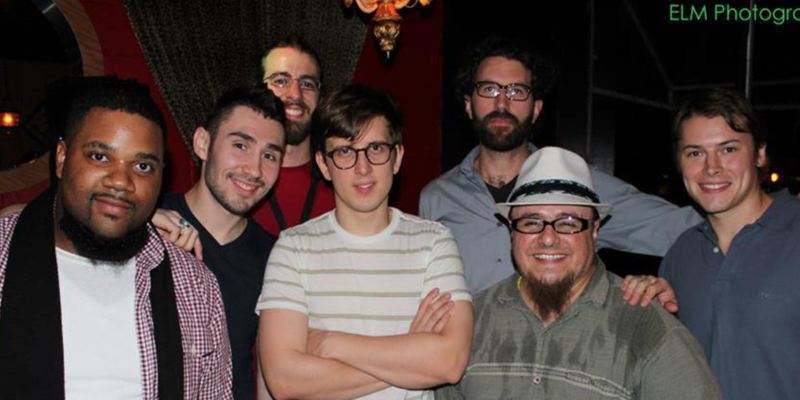
Tito Puente said, “If there is no dance, there is not music.”
I’m sure many musicians would probably disagree with that statement, but dancers and musicians have a symbiotic relationship when Gino Castillo’s quartet plays at Voodoo Tiki Bar and Lounge.
“We play better when people are dancing,” says Castillo, “Sometimes there is so much energy and everyone is dancing and I don’t want to stop playing.”
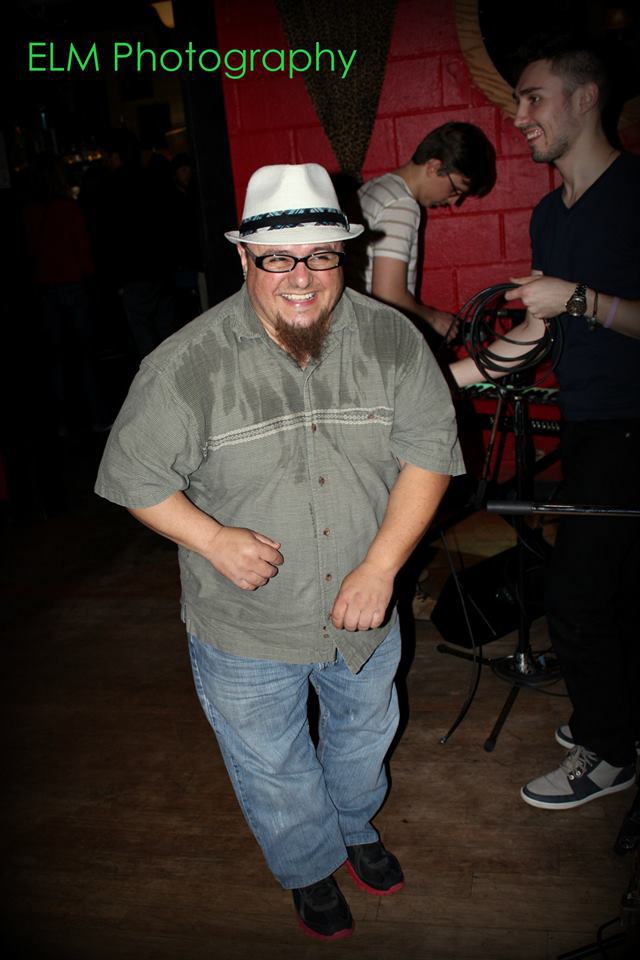
Gino Castillo. Photograph courtesy of ELM Photography.
Almost every Sunday evening, Castillo and his quartet take the floor at Voodoo and play a mix of what Castillo describes as “Afro-Cuban funky jazz” while an increasing number of salseros swirl around the beer-stained hardwood floors of the Avondale bar. The set list includes anything from Cuban hits like Los Van Van’s “Azucar” and Irakere’s “Bacalao con Pan," to tunes from Dizzy Gillespie and (my favorite) a Cubanized version of Gershwin’s “Summertime.”
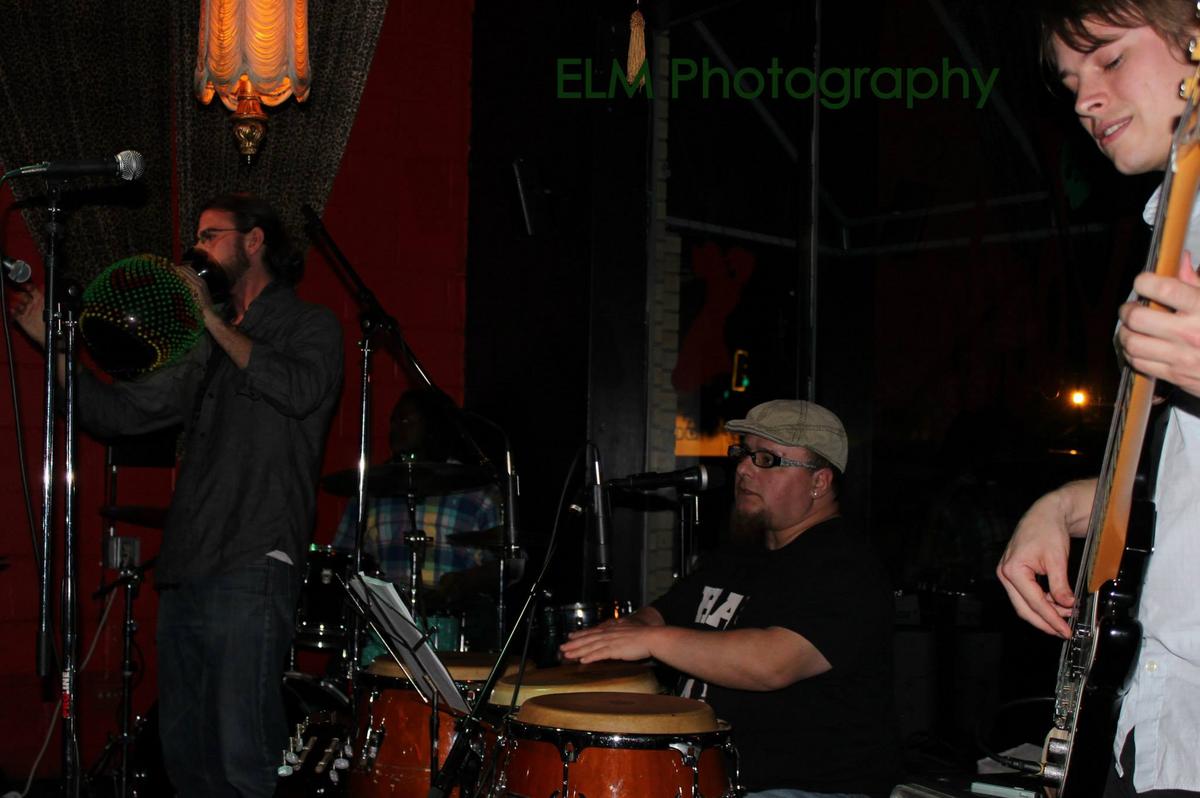
Photograph courtesy of ELM Photography.
Trey Cooper kills it on the keys, Jake Howlenger holds down the bass line, and Michael Quinn keeps it funky on sax and the instrument I used to call the "shaky gourd thing," until I learned it was called a shakere. (But, to be fair, it’s essentially a hollow gourd covered in what looks like one of those wooden beaded things people put on their car seats to massage their backs.)
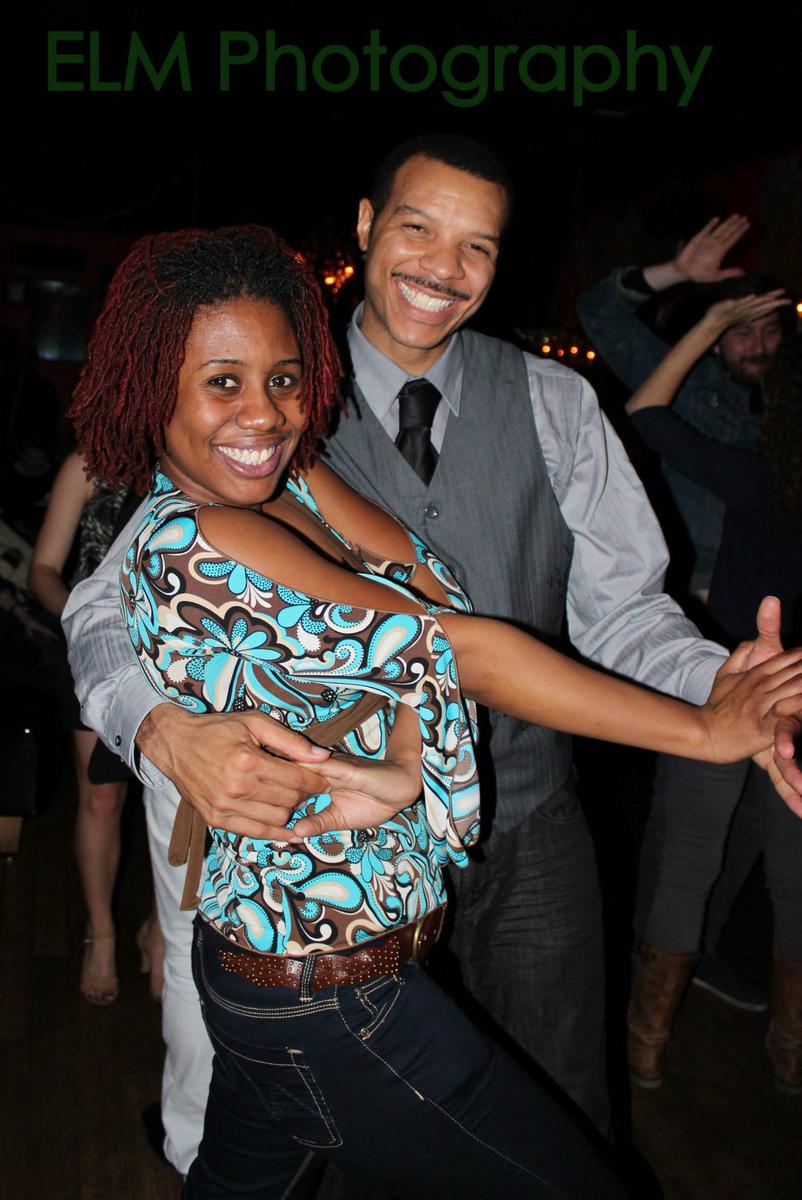
Photograph courtesy of ELM Photography.
Castillo, a native of Ecuador who spent 11 years studying and playing percussion in Cuba, has only lived in Charleston for four years, but considers himself a Charlestonian. He assembled his quartet through a series of happy accidents: meeting the original bassist William Moore at a teaching clinic in Goose Creek and connecting with Trey Cooper at a gig with Bringers of the Dawn, who also brought Michael Quinn into the fold.
“They told me ‘Ok, we want to do that, but we know nothing about the Latin or Cuban music,’ ” says Castillo. He replied, “If you want to learn, I can do my best to show you how to do that.”
Now native Cubans aren’t sure if the band is comprised of Latinos or gringos.
“I’m so happy and proud of band. They didn’t know nothing about that music and they really learned,” says Castillo. “Like this gringo, really nerd gringo, plays these crazy things on piano with flavor.”
A few of Castillo’s Cuban friends have come to Voodoo to see the band and were amazed.
“My friend used to be a club manager and he said, ‘I can’t believe I just closed my eyes and thought I was in Cuba,’ ” says Castillo.
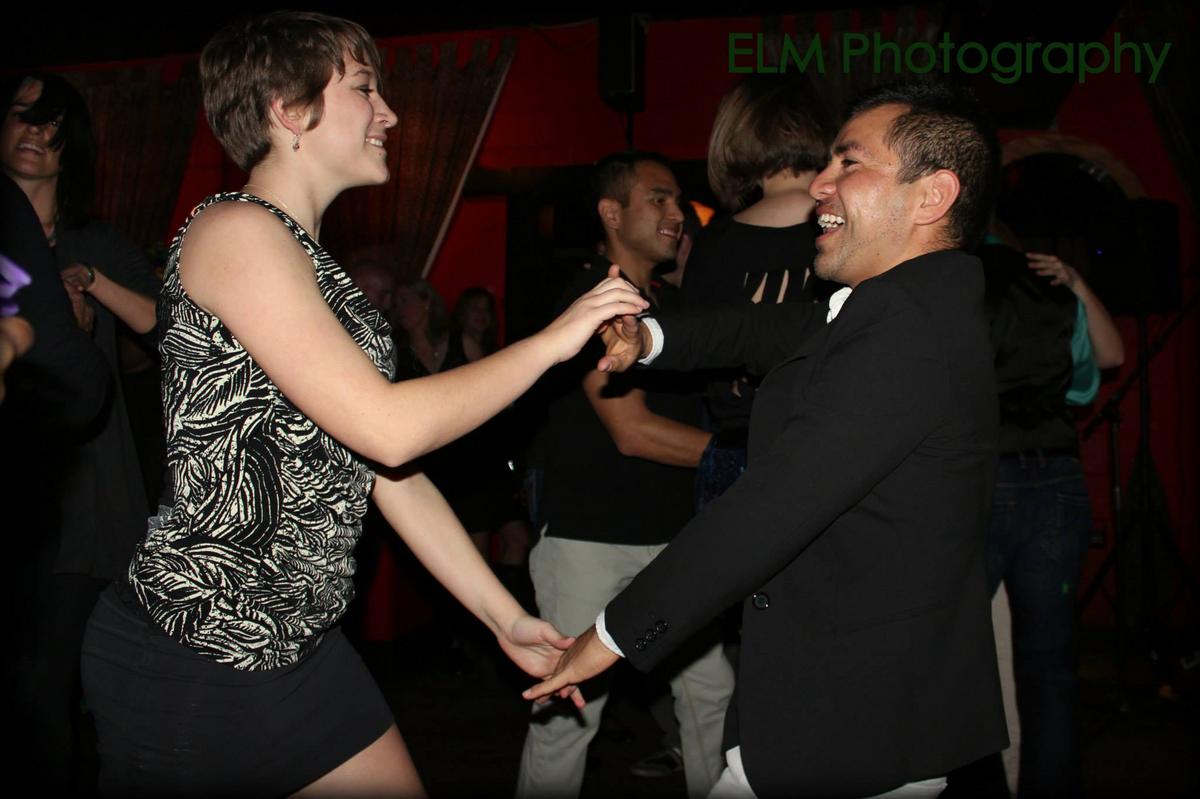
Photograph courtesy of ELM Photography.
Although we (all the salseros of Charleston) dance salsa when Castillo and the boys play, Castillo is adamant that they aren’t a salsa band.
“It is not straight Latin jazz and it is not salsa…it’s kind of something in between,” says Castillo.
The in-between is what gets us moving during the Havana Nights at Voodoo. The band has been playing for more than two years among the bar’s pleather couches, cheetah-print curtains, and air-brushed portraits of Looney Tunes characters, and he has added another Havana Nights at Tabbuli in West Ashley on Thursdays from 9 pm–12 am.
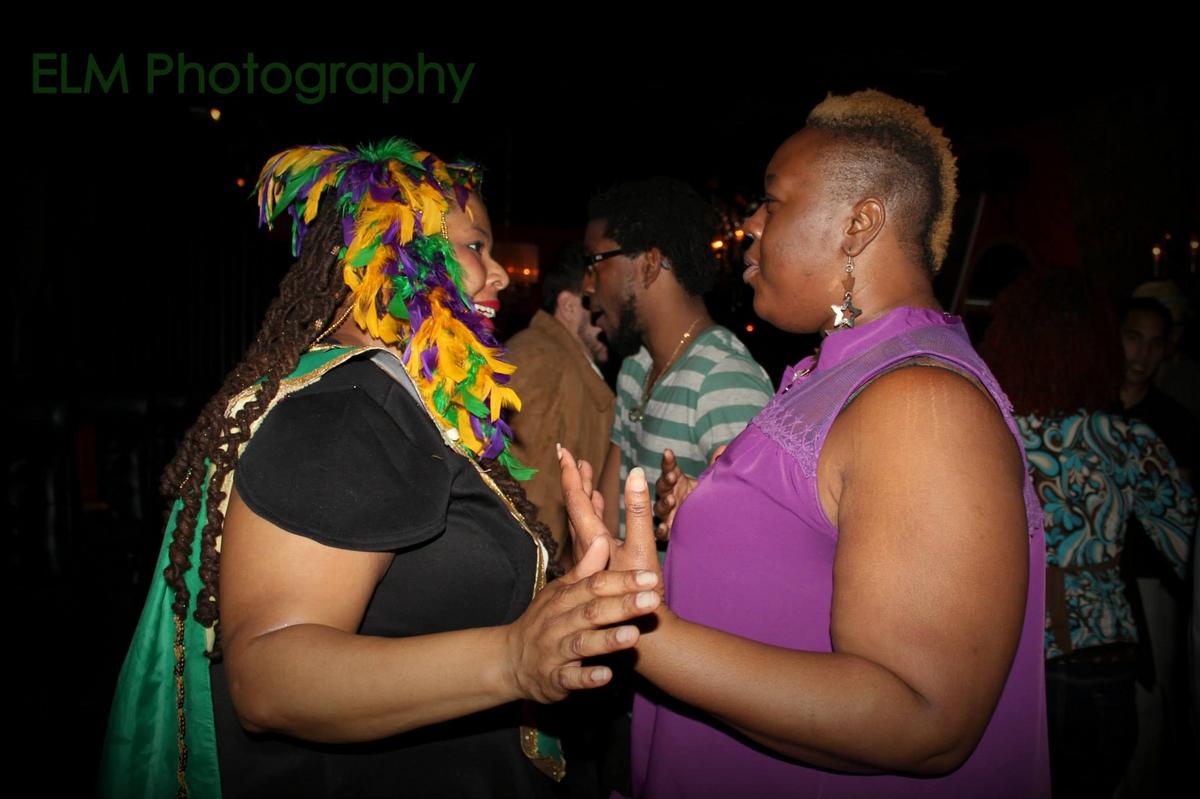
Photograph courtesy of ELM Photography.
When I first went to see the band at Voodoo in May of 2013, there were just a handful of dancers and the floor was mostly empty. Over the last two years, so many people come to listen to the music and dance that it feels like dancing in a New York subway. It’s hard to describe exactly what the vibe is now, but I think the correct word for it is friendship—an easy rapport among the dancers, the musicians, and everyone there to just have a good time.
“I think it’s because we are doing this thing together better every Sunday. We know better what you need,” says Castillo. “It’s something pretty special. It’s people enjoying and doing a good job enjoying.”